What Are Nitrogen-Filled Tires?
July 21st, 2022
Your car's tires need proper inflation to carry the weight of the vehicle. Proper inflation provides the appropriate load capacity and enhances the tire's performance and durability, in addition to improved fuel economy. Your vehicle's tires should be inflated to the manufacturer's recommended air pressure. Accurate tire pressure can also increase your tire wear life and make your vehicle safer on the road. With the advancement in tire manufacturing and efficiency, you now can inflate your car's tires with either air or nitrogen. 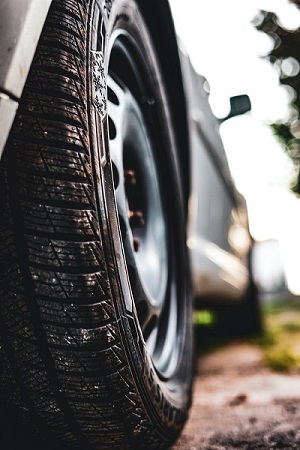

Nitrogen-Filled Tires
Research has shown that nitrogen-filled tires lose pressure about 40 percent slower than regular air. Nitrogen-filled tires are an alternative to filling your tires with air for tire inflation. Nitrogen-fi ...[more]
Tags:
tires
Posted in:
Tires 101
3 Big Reasons to Not Mix Tires
April 14th, 2022
It is highly recommended that for optimal safety and performance, the same tires should be placed on every wheel position on your car. Tires should be the same brand, size, tread pattern, load index, and speed rating on the front and rear. Mismatched tire sizes and constructions can be dangerous. Our tire experts always recommend following the vehicle manufacturer's specifications for proper tire size, load index, and other specifications when choosing new tires for your car, truck or SUV. 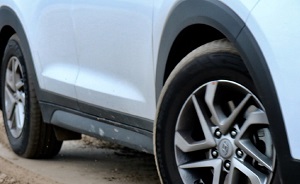

Mixing tires means using a tire with a different characteristic from a matching set. Industry leaders recommend replacing all four tires at the same time or at least two on the rear of the vehicle. Some examples of mixed tires include the following combinations:
- Tires for different season ...[more]
Tags:
tires
Posted in:
Tires 101
Why Do Tires Go Flat in Cold Weather?
February 10th, 2022
Your tires play a crucial role in the safety and functionality of your vehicle. Proper tire maintenance is vital in preventing flats, enhancing road safety and improving gas mileage. During the colder months, tires will need routine inspection and care. Colder temperatures will cause tire pressure to drop about one PSI (pounds per square inch) for every 18°F drop in air temperature. Check your tire pressure regularly by monitoring the TPMS (tire pressure monitoring system). When the TPMS light turns on, this means that one or more tires have dropped below their recommended pressure. Your vehicle’s tire pressure reading should match the recommended tire pressure as stated in the owner’s manual. 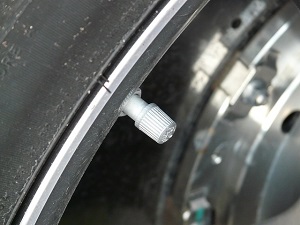

The best way to prevent a cold-weather flat is to keep an eye on tire pressure. ...[more]
Tags:
tires
Posted in:
Tires 101
Should You Plug or Replace a Tire?
May 13th, 2021
It has happened to most of us. We're on our way to school or work, and we hear that dreaded sound of a flat tire or a blowout. Some sort of debris in the road has left you with a damaged tire and an immobile vehicle. This situation always brings on frustration. Now you must deal with getting your car to a tire repair shop. The tire has to be properly assessed to perform the necessary repair or replacement service. Depending on where the puncture is located and the severity of the damage, the tire will either only need a simple repair or be replaced. 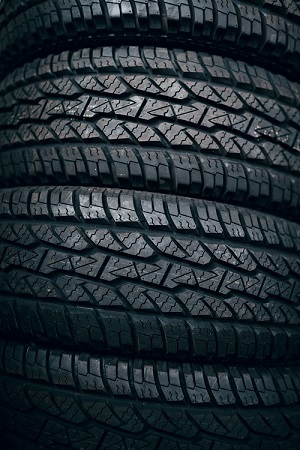

Tires are crucial to the safe performance of our vehicles. For the continued safety of your car, mechanics must utilize the best possible way to fix your tire. The availability of options leads to some debate over what is the "best" way to fix a ...[more]
Tags:
tires
Posted in:
Tires 101
How Old is My Tire?
April 15th, 2021
Determining your tire age is very important for your driving safety. Driving with a tire over six years old could be putting you and your passengers in danger. Tires dry rot with age from the inside out. When the tire gets older, it is exposed to the elements, and the strength of the bond between the rubber and the steel belts is reduced. This can cause cracks in the rubber, which may appear on the tire’s surface and can also appear out of sight within the structure of the tire. Keeping a record of your tires and understanding their age will help you save money on repairs and take proper care of your vehicle. Driving on damaged tires is extremely dangerous and can lead to a fatal accident. 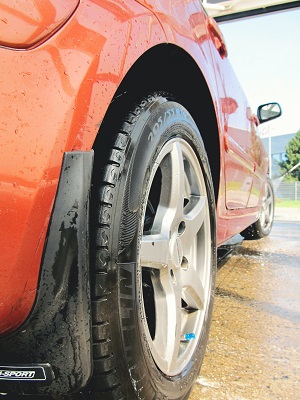

It is recommended that drivers have a professional auto mechanic inspect all tires that are in use for six years or ...[more]
Tags:
tires
Posted in:
Tires 101
Our Recommended Tire Safety Checklist
February 11th, 2021
Tires should never be neglected. The safety of your vehicle depends on it. Your car’s brakes, along with the tires, are two of the most crucial components of your vehicle. Ensuring you are driving a safe vehicle is important not only for your own safety but for other people on the road as well. Having a tire safety checklist is an important part of making sure you are driving a safe vehicle. When you get behind the wheel, especially to travel long distances, you should perform a quick safety check on your vehicle, including an inspection of your tires.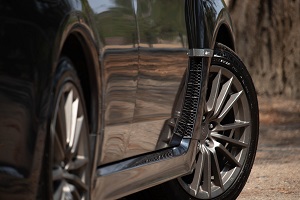

Regularly check your tire safety and maintenance checklist for some of the common issues your tires can have. Tires take more abuse than almost any other component of your automobile. They have direct contact with the road and all its elements tha ...[more]
Tags:
tires
Posted in:
Tires 101
How to Choose the Right Tire
December 24th, 2020
Tires are the only point of contact between your vehicle and the road. They also support the weight of the vehicle. Tires play a vital role in ensuring your car is safe to be driven. Selecting the right tires for your vehicle is an important task. Get it wrong, and you can jeopardize your car's performance and its ability to tackle any type of weather. Car tires usually need to be replaced every three or four years. Your tires must handle a wide variety of climatic conditions, so you need to make sure to buy tires that will perform not only in your most common climate conditions but also in the most extreme conditions that you will face. 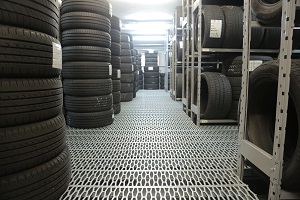

Choosing the tires that will serve your needs best involves determining the kinds of driving you’re doing, the type of vehicle you own, and the weather co ...[more]
Tags:
tires
Posted in:
Tires 101
What to Do if You Have a Flat Tire
November 12th, 2020
Getting a flat tire — whenever it is — is always a huge inconvenience. You were going about your day and suddenly “boom!” You pull over to check the damage and notice your tire is flat. Now what? One thing you should not do when you get a flat tire is to continue driving. Without a proper tire, you can seriously damage your wheel, which will cause the need for a tire replacement. A flat tire is caused by either a puncture, tire failure, damage to the valve system, excessive wear and tear, separation of tire and rim, or a blowout due to the tire’s over- or under-inflation. Changing a flat tire will be easier if you are preparing for the inevitable. 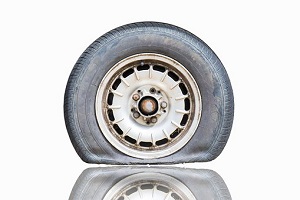

Many people don’t know how to change a flat tire and don’t even think about the situation until their stranded on t ...[more]
Tags:
tires
Posted in:
Tires 101
How to Inspect Your Tires
October 15th, 2020
Your car’s tires are a huge part of your driving experience and a crucial component of the safe performance of your vehicle. Tires are the car's connection to the road. They help you to accelerate, brake, and keep your car under control. A good set of tires can make the difference between a safe, smooth ride and a dangerous vehicle on the road. On the other hand, bad tires can wear out the car and reduce gas mileage by requiring more effort to do its job. Faulty tires can also cause other problems with your car. Wheel alignment, suspension, tire balancing, and brakes can all be affected by the condition of your tires.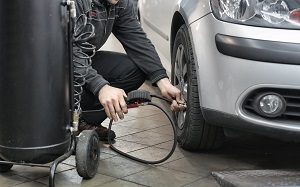

Tire failure can be catastrophic. According to recent studies, an estimated 11,000 car crashes per year are caused by tire failure. These accidents were as a result of worn-out ...[more]
Tags:
tires
Posted in:
Tires 101
How is a Tire Made?
September 24th, 2020
The tires on your vehicle and vehicles across the world, was a result of multiple inventors across several decades. Robert William Thomson invented the first vulcanized rubber pneumatic tire in 1845, but it was too costly and ahead of its time and attracted little interest. In the 1880’s John Boyd Dunlop was the inventor of the first practical inflatable tire for bicycles. Several years later, André Michelin and his brother Edouard were the first to use pneumatic tires on an automobile, but they were not successful in making them durable. It wasn't until Philip Strauss invented the combination tire and air-filled inner tube in 1911 that pneumatic tires could be used on automobiles with success. 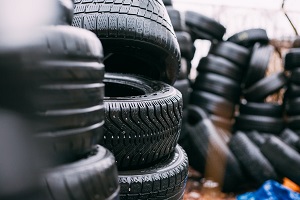

Tires are made of strong, flexible rubber attached to the rim of a wheel to provide ...[more]
Tags:
tires
Posted in:
Tires 101
| 1234567 | Next >> |
Categories
Archives
2022
October (1) September (1) August (1) July (1) June (1) May (1) April (1) March (1) February (1) January (1)
2021
December (1) November (1) October (1) September (1) August (1) July (1) June (1) May (1) April (1) March (1) February (1) January (1)
2020
December (2) November (2) October (2) September (2) August (2) July (2) June (2) May (2) April (2) March (2) February (2) January (2)
2019
December (2) November (2) October (2) September (2) August (2) July (2) June (2) May (2) April (2) March (2) February (2) January (2)
2018
December (2) November (2) October (2) September (2) August (2) July (2) June (2) May (2) April (2) March (2) February (2) January (2)
2017
December (2) November (2) October (2) September (2) August (2) July (2) June (2) May (2) April (2) March (2) February (2) January (2)
2016
December (2) November (2) October (2) September (2) August (2) July (2) June (2) May (2) April (2) March (2) February (2) January (2)
2015
December (2) November (2) October (2) September (2) August (2) July (2) June (2) May (2) March (3) February (1)
2014
November (2) October (2) September (2) August (2) July (1) June (2) May (3) April (3) March (2) February (2) January (3)
2013
Tags
tires MPG gas mileage New Warehouses preventative maintenance winter auto repair winter car service tire summer tires all season tires winter tires drivers safety auto repair auto service brakes brake service flat tires car repair oil change brake fluid transmission fluid power steering fluid tire pressure Fuel Economy air conditioning car alignment Mother's Day AC Service wheel alignment tire rotation tire repair tread depth tread wear replacing tires driving safety back to school tire rotation service tire inflation Halloween vehicle lighting headlights holiday travel oil changes car air conditioning mechanic car battery snow tires high mileage car high mileage engine tire recycling tire technology tips auto facts tire facts check engine light spark plug truck tires used car buying tips performance upgrades Serpentine Belt Timing Belt Spare Tire Tire safety Parking Brake Engine Facts Auto Maintenance Tire Maintenance Traffic Laws Buy New Tires Tire Types headlight restoration Tire Recycle Auto Repair



